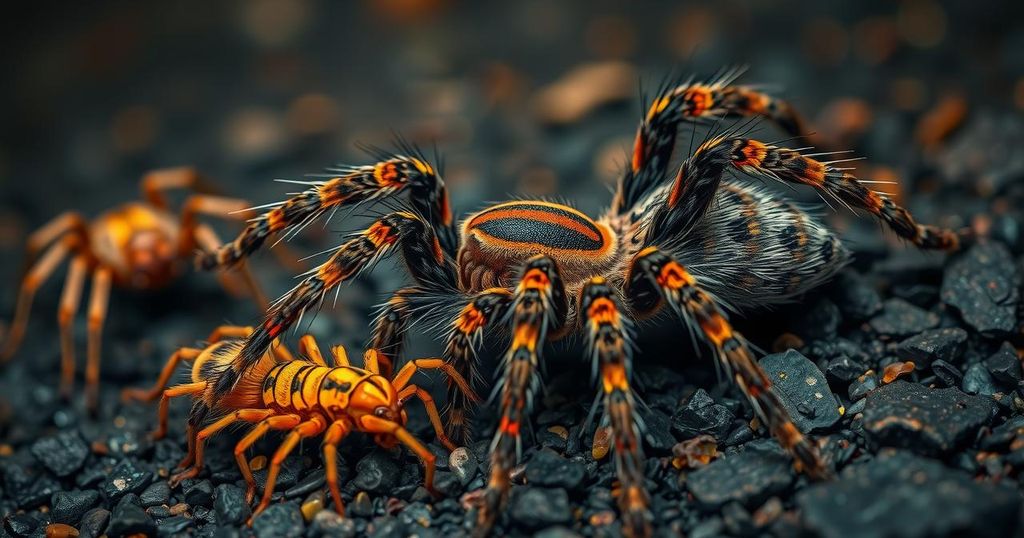A man was arrested at Lima’s airport for attempting to smuggle 320 tarantulas, 110 centipedes, and 9 bullet ants concealed beneath his clothing. The incident highlights the issue of illegal wildlife trafficking, particularly concerning endangered species. Authorities noted that demand spikes before holidays, increasing the trafficking risks. This case mirrors the broader multibillion-dollar exotic pet trade driven by collectors and various sectors.
A recent incident at an international airport in Lima, Peru, led to the arrest of a South Korean man attempting to board a flight while concealing numerous exotic creatures beneath his clothing. Customs officials, suspicious of the man’s unusually distended abdomen, discovered that he had concealed 320 tarantulas, 110 centipedes, and nine bullet ants in small plastic bags secured with adhesive tape. The bags were affixed to girdles around his body, and all species were native to the Amazon region, with the tarantulas being classified as endangered. Peruvian authorities reported that these species were smuggled illegally and are emblematic of a larger issue involving wildlife trafficking, which is known to generate billions of dollars annually. Walter Silva, a wildlife specialist, emphasized the severity of the situation, indicating that such trafficking often escalates before holidays, as demand for exotic pets spikes. Moreover, studies indicate that a significant proportion of collected arachnids in the United States are not intended as pets but for various purposes including research and ornamental use. In the case of the tarantulas, particularly juvenile females, their value may increase over time due to their longevity and desirability among collectors. The illegal trade in exotic pets and wildlife is a pressing global concern, with estimates suggesting that it accounts for a multi-billion dollar industry. Countries rich in biodiversity but economically disadvantaged often find themselves at the center of this trade, exporting valuable species to wealthier nations. The unsettling trend not only threatens various species, particularly endangered ones, but also highlights the ethical implications of wildlife exploitation on a global scale.
The incident involving the smuggling of tarantulas, centipedes, and bullet ants underscores the broader challenge of illegal wildlife trafficking that affects biodiversity globally. Wildlife trafficking is often driven by demand in wealthier nations where exotic species are sought for various uses, including as pets or for research purposes. Furthermore, the exotic pet trade has been reported as a multibillion-dollar industry, with significant impacts on species conservation, especially in biodiversity-rich yet economically challenged countries.
In conclusion, the attempted smuggling of numerous exotic creatures by a South Korean man at a Peruvian airport reveals the serious issue of illegal wildlife trafficking, particularly as it pertains to endangered species. The findings not only highlight the lucrative nature of the exotic pet trade but also bring attention to the ethical concerns surrounding biodiversity conservation and the exploitation of wildlife. Authorities are urged to continue their efforts in combatting such illegal practices, which threaten both specific species and global biodiversity.
Original Source: www.nytimes.com







